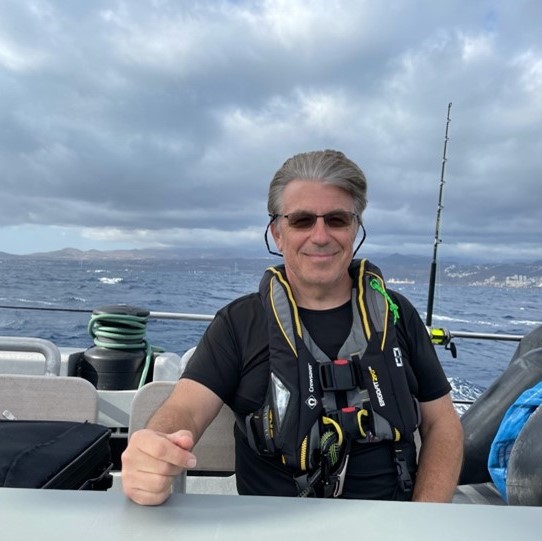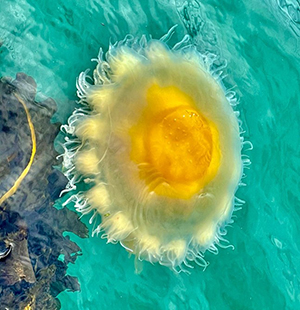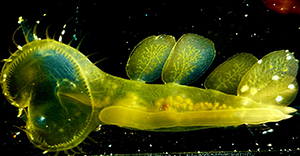 The Whitney Laboratory for Marine Bioscience
The Whitney Laboratory for Marine Bioscience

Through a private donation to the University of Florida Foundation an expedition will further launch UF Distinguished Professor Leonid Moroz’ research in functional marine genomics, including understanding neuronal evolution and biodiversity. The University of Florida, a top 5 public university, has research from the smallest microscopic to larger animals in the sea, to areas like sea level rise.
The expected voyage will be retracing the same route as Charles Darwin performed more 180 years ago. But the major goal today will be deciphering animal and neural evolution at the level of single cells and facilitate making Cell Tree of Life as the foundation for new synthetic biomedicine for the future.
The team will set sail southward from Northern Europe to the Canary Islands, across the Atlantic to Brazil, and finally southward entering the Beagle Channel in Patagonia.

(One of the largest jellyfish - Cyanea)
The team will deploy an integrative mobile floating laboratory with advanced imaging and molecular technologies and equipment to capture the most elusive marine species, critical for reconstruction of the origins of muscles, neurons and brains - the process, which might occur more than once over 600 million years.
Dr. Moroz is a distinguished Professor of Neuroscience, Genetics, Biology and Chemistry at the University of Florida, Whitney Laboratory for Marine Bioscience. In 2013-2014 he led the team that conducted the first direct sequencing at sea known as Ship-Seq.
The voyage is generously funded by private donors to host both scientists and trainees to educate people around the world. In particular, these funds will be using toward interdisciplinary oceanic expedition with advanced genomic, imaging and molecular technologies.
The proposed route of this expedition will largely parallel Darwin’s voyage due to amazing biodiversity hotspots long the voyage.
Many do not realize that The Beagle left England during an epidemic and could not land on some islands due to quarantine restrictions, an eerie parallel to current times. In Canary, Darwin collected Aplysia, the very organism that provided breakthrough insights on the function of neurons and memory more than 150 years later including pioneering Nobel Prize winning work of Dr. Eric R. Kandel.

(Nudibranch molluscs - Melibe)
The Moroz lab at UF Whitney Laboratory for Marine Bioscience studies the very origins of neural and memory mechanisms and it is expected that many lineages of comb jellies, worms, mollusks and other marine creatures will help to uncover these enigmatic processes.
Main Photo: Dr. Leonid Moroz leaving on the voyage